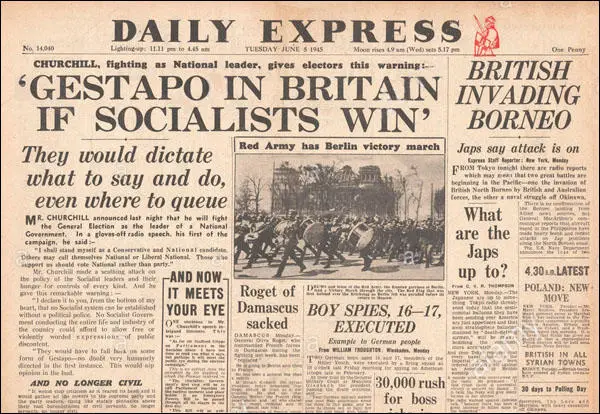The 2019 general election has already led to much soul-searching on the left. In particular, the loss of many seats in the, so-called, ‘red wall’ of historically safe seats in Wales, the Midlands and the North appears to demonstrate the social distance between the Party’s left-wing cosmopolitan London activists and its traditional working-class base. Why would so many workers, choose a Tory Brexit over a radical Labour manifesto which would have markedly improved their lives? Much focus is placed on the perceived failures of Jeremy Corbyn or at least the media’s portal of the leader. But despite the appeal of such parsimonious arguments, simply blaming the leadership or the media risks missing the deeper problems facing the left in contemporary capitalism. Likewise, it’s clear that Brexit presented the Party with a colossal challenge, yet to simply blame Brexit fails to account for why Labour was ill-equipped to overcome it. It is essential that our analysis does not simply float meaninglessly on the surface of despair, clutching at the obvious; instead it must penetrate the surface and examine the underlying structural challenges that contemporary capitalism presents the socialist project.
There is nothing new about a hostile media. The left has always had to contend with the ability of the powerful to utilise the media to defend their interests.

However, what is unique to our current epoch (at least in the UK) and of greater structural significance is the dramatic decline of trade unions over the last 35 years. Not only do trade unions defend workers economic interests but historically they acted as a countervailing force to the symbolic power of capital. Up until the late 20th-century trade unions played a crucial role in civil society, for they represented one of the few independent institutions controlled by workers. It was trade union meetings, publications and actions which provided working people with alternative understandings to those found in the pages of the capitalist press. In fact, The Sun newspaper originated in 1911 as a strike bulletin which went on to became the labour movement’s daily newspaper. Trade unions provided people with a space in which to discuss the realities of surviving in a capitalist economy, and in which they could develop, what Antonio Gramsci referred to as ‘good sense’, an intuitive collective understanding of the need to eliminate the injustice and insecurity of capitalism. Gramsci believed it was the kernel of good sense which workers carried with them that could challenge the ‘common sense’ reinforced by capital.
Likewise, the Labour Party was founded in 1900 by the Trade Union Congress (TUC) to further the parliamentary representation of workers’ interests. The Labour Party was directly born out of the recognition that a successful struggle in individual workplaces needed to be tied to a united class struggle in the political sphere.
However, in contemporary capitalism, the trade unions that gave birth to the Labour Party are increasingly little more than a fading memory in a majority of workplaces. For instance, in 1979 more than 1 in every 2 workers was a member of a trade union, today that figure has declined to less than 1 in 4 and in the private sector this figure is just 14%. This has left the Labour Party orphaned and disconnected from the majority of people’s lived experiences of capitalism. Likewise, there is now little institutional support by which good sense can crystallise and challenge the siren calls of nationalism, racism and individualism.
This is a serious barrier to any socialist political project. A Labour Party not embedded in a vibrant labour movement has little hope of success. Trade unions provide a communicative space in which workers’ interaction can develop into the alternative frames of understanding necessary for challenging the status quo. Through communication with others facing the same struggles our individual problems, concerns and issues – which may initially appear as inevitable or the result of personal failings – can be reinterpreted as constituting a shared injustice resulting from the actions of others with opposing interests. Trade unions, therefore, play a central role in providing a day-to-day communication space for the political education and framing which is a necessary precondition for the success of any socialist political project.
Moreover, trade unions historically played an important organisational role by providing the resources and training for organic leaders to emerge from workplace struggle and take prominent positions in civil society. In the 1920s 70% of the Labour Party’s MPs were drawn from working-class backgrounds but this declined alongside trade unions from the 1980s and by 2018 just 8% of MPs were from a working-class background. Of course, even if it were possible to go back to the past, it would not be desirable to do so. Likewise, any attempt to rebuild the Party’s support through appeals to nationalism will simply reinforce the common sense of Boris Johnson’s populism. Therefore, it is crucial that worker organisation be rebuilt in contemporary capitalism, especially in the private sector and that it reflects the contemporary diversity of workers. This necessities the explicit recognition that the idea of a white working-class is an oxymoron. Class is a shared experience of injustice rooted in the capitalist labour process and, therefore, by definition has no racial or gender component. Of course class exploitation intersects with other forms of oppression based on race, ethnicity, gender, sexual preference, etc. and workers often draw non-class boundaries on the basis of these intersections but class itself cannot be boiled down to some kind of simplistic identity politics. There are white workers and white members of the working class but there is no such thing as a white working class. The Labour Party must be an institution for the working class as a whole or it ceases to be a labour party. Likewise, the idea that only way that the Labour Party can reconnect with working class voters in the former ‘red wall’ is with a social conservative as leader is completely ludicrous. For many of these same voters have just voted for Alexander Boris de Pfeffel Johnson an old Etonian, born in New York and raised in the South of England and Brussels, whose private life hardly smacks of social conservatism.
Towards networked solidarity
Rebuilding the labour movement might seem like daunting task, however, unionisation has tended to advance through upsurges rather than incremental gains and as the recent #McStrike highlights new communication technology might support 21st century upsurge. In 2017 Momentum played an important role in supporting the BFAWU’s #McStrike mobilization, this support helped to rouse large demonstrations in support of striking fast food workers and forced McDonalds to improve pay and conditions. It is exactly these unorganised workers that the left needs to put their energies into supporting over the next five years. However, #McStrike has yet to go beyond what Jane McAlevey terms ‘shallow mobilizing’, that is a media campaign that relies on professional organisers with little grassroots accountability while workers are confined to play only a symbolic role as ‘authentic messengers’ managed by PR professionals. The danger is that such mobilizations end up relying on the same activists who can always be counted on to turn up at every protest and meeting while the workers themselves are disempowered.
McAlevey argues instead for ‘deep organising’, this focuses on activating those who would not normally consider themselves to be activists. This is achieved by identifying and growing the skills of organic leaders. These are workers who are key influencers in their workplace and thus able to draw on their social networks at work and in their community to expand participation until mass action, such as majority strikes, are possible. However, in contemporary capitalism, many working-class jobs lack the structural economic power necessary for traditional deep organising to be viable. For instance, jobs in hospitality and retail are not strategically located in the social division of labour and nor do they require scarce skills and tend to be drawn from loose labour markets making them easy to replace. Moreover, workers in many service sector jobs are spread across numerous small scale workplaces and fragmented across different shifts. This new post-industrial context requires new forms of union organising and new ways of developing solidarity.
In 2013, I spent six weeks participating in the OUR Walmart mobilization in California. This mobilization demonstrates how the post-industrial working class can use social media to effectively undertake a networked form of organising while simultaneously using mobilising activities to improve their conditions. Social media provided Walmart workers with a means to connect with each other and union organisers beyond the boundaries of their workplaces. By participating in Facebook groups workers learnt of their similarities and common work experiences. This social media facilitated interaction was central to the development of a sense of solidarity and shared identity which coalesced into a class-based notion of exploited low-wage workers. Social media also enabled organic leaders to emerge and access their workplace social networks despite employer repression and bring other workers and members of the community into the mobilization. While the union played a vital role in guiding decision-making it also emphasised worker engagement and empowerment. For example, in meetings union organisers acted as facilitators, who encouraged workers to participate and as a result, it was clear that workers found the experience empowering and felt ownership of the mobilization. I observed how the meetings contrasted with the process-heavy format synonymous with conventional union meetings. The use of social media enabled these workers to overcome barriers to workplace organising by adopting a more network-like form in which the union played the role of ‘orchestrator’ by providing strategic oversight. Following a number of high profile networked strikes, direct actions and protests Walmart responded by improving the pay of 500,000 workers. We see similar processes currently taking place in the UK gig economy.
Unions, such as BFAWU, IWGB and UVW, which have been at the forefront of attempts to renew private sector worker organisation in the UK are relatively small and lack resources. Over the next five years left activists and organisations must put all their efforts into supporting initiatives such as these in order to build a networked labour movement which is able to develop and support socialist frames of understanding, that can provide a route for workers themselves to become organic leaders in the political sphere and reconnect the Labour Party to workers’ lived experience of capitalism. Not only are many workers in desperate need of unions but so is the Labour Party.
The election result must not lead to prolonged navel navel gazing and the picking apart of the Labour Party’s policies, which are individually popular. Instead our efforts should go into developing and building working class institutions which can sustain the good sense necessary to sustain support for them as a whole in the face of a prevailing hegemony built upon the common sense of nationalism, racism and individualism.
Like never before do the final words of Joe Hill, ‘don’t mourn organise’, resonate with our times . That organising must start in the fissured and fragmented post-industrial workplaces of 21st-century capitalism.
